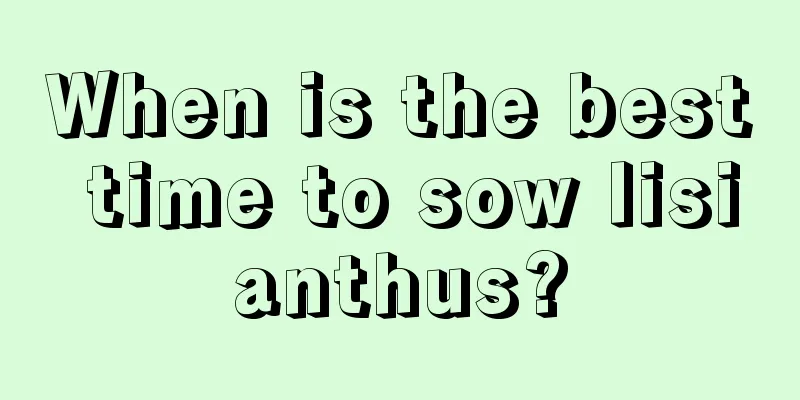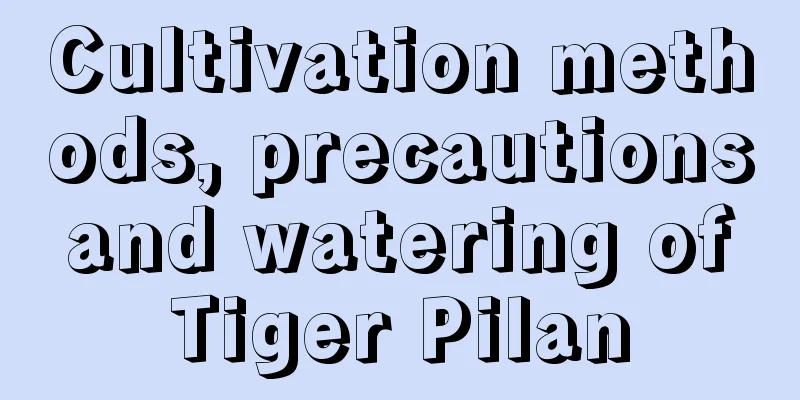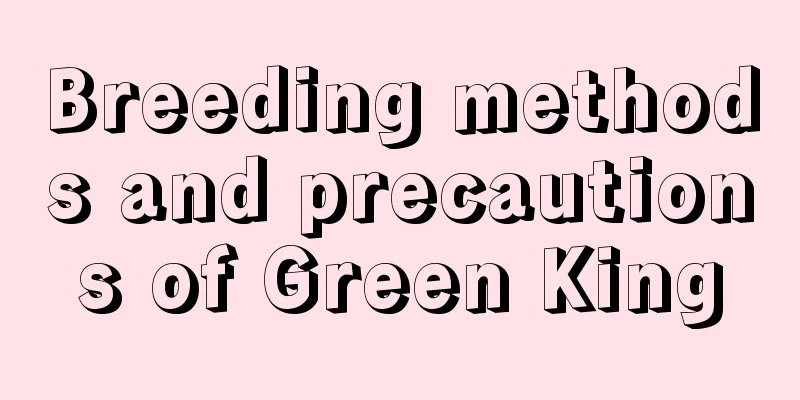Why does eggplant bloom but not bear fruit?

|
Eggplant, a vegetable crop originating from tropical Asia, has specific temperature requirements for its growing environment. In May and June every year, whether in the south or the north, whether planted in a greenhouse or in the open air, eggplant enters a critical stage of its growth. Although eggplant has good adaptability, it may still encounter various problems if the field is not well managed, such as the phenomenon of eggplant only blooming but not bearing fruit that we are going to discuss today, which will seriously affect the yield of eggplant. So why does eggplant bloom but not bear fruit? 1. Environmental conditions The ideal growing temperature range for eggplant is 20℃ to 30℃. Temperatures that are too low or too high will affect flowering and fruiting. Eggplant also needs plenty of sunlight and moderate humidity. To improve these conditions, use shade nets or supplemental lighting to regulate temperature and light in the eggplant growing area. At the same time, maintain ventilation and appropriate humidity, and avoid extremely dry or humid environments. 2. Fertilization issues Eggplant requires trace elements such as boron to promote anther development and pollination. Lack of these elements may lead to poor anther development and affect fruiting. Proper fertilization, including the addition of boron-containing fertilizers or organic fertilizers , can help solve this problem. 3. Pollination barriers Eggplants rely on pollinating insects for pollination. If there are not enough pollinating insects in the environment or they are not active frequently, the pollination of eggplant will be affected. Pollination efficiency can be improved by placing beehives or adopting manual pollination methods. 4. Flower density If eggplant flowers are too dense, they may block each other and affect light and ventilation. Proper pruning of eggplant branches and leaves can promote the spreading of flowers and increase the chances of flowering and fruiting. 5. Pest and disease control Eggplant may be attacked by pests and diseases such as powdery mildew, blight, and aphids during its growth process. These pests and diseases can damage the anthers, affecting pollination and fruiting. Timely detection and treatment of pests and diseases and the adoption of biological or chemical control measures can protect the healthy growth of eggplant. In short, to solve the problem of eggplant only blooming but not bearing fruit, it is necessary to comprehensively consider environmental conditions, fertilization strategies, pollination efficiency, flower density, and pest and disease control. Through meticulous field management, the flowering and fruiting rate of eggplant can be increased and the crop yield can be ensured.
|
<<: How to take care of the newly bought rainbow jade
>>: How to care for the newly bought Golden Edge Tiger Pilan
Recommend
When is the best time to plant carrots in the south?
Carrot planting time in the south The most suitab...
Can the leaves of Kalanchoe be sprayed with water? Can the flowers be sprayed with water?
1. Is it possible to spray water? You can spray t...
Cultivation methods and precautions of drug-absorbing grass
Farming methods Temperature and light The drug-ad...
What is the best month to plant cabbage?
When to plant cabbage Cabbage grows more vigorous...
Cultivation methods and precautions of Yunnan Paris polyphylla
1. Soil Paris polyphylla grows well in slightly a...
Which month is the best time to plant ginger?
In recent years, ginger has won the attention and...
How to grow purple lotus
1. Soil For breeding, you need to use loose soil ...
How to grow ornamental pumpkins in pots
Selection of ornamental pumpkin varieties Golden ...
How to press the loofah vine
1. Pressing time Choose to press the vines for th...
Disease and Pest Control of Sugar Apple
anthrax If the sugar apple is infected with anthr...
Aloe Queen Pest and Disease Control
Disease type: White rot, leaf blight, brown spot,...
Reasons and solutions for the yellowing of green radish leaves in winter
Pothos is a common green companion in many people...
Lotus planting method, lotus growth process
1. Planting method 1. Time: Planting should be do...
How to plant onions so they grow well?
Among vegetables , there are common vegetables wi...
Can grapefruit trees be potted?
Can grapefruit trees be potted? The pomelo tree c...









